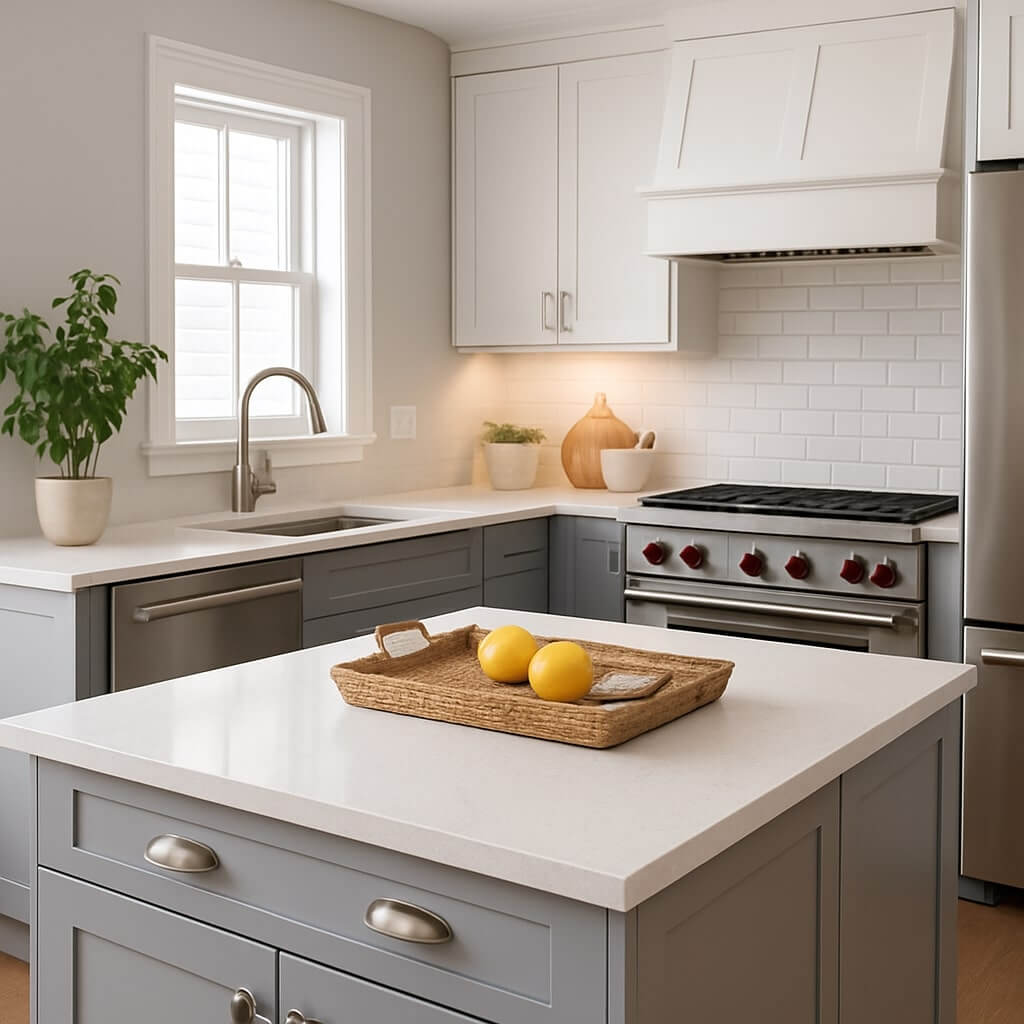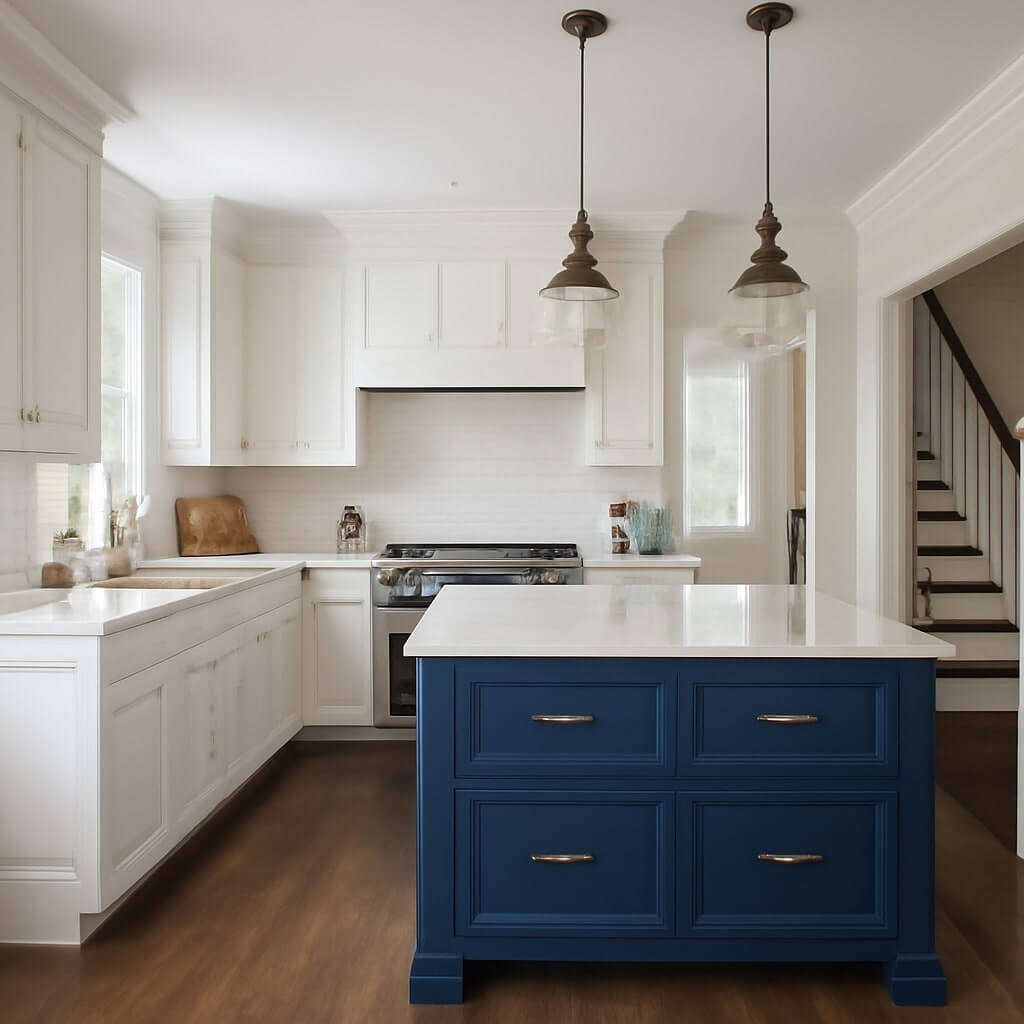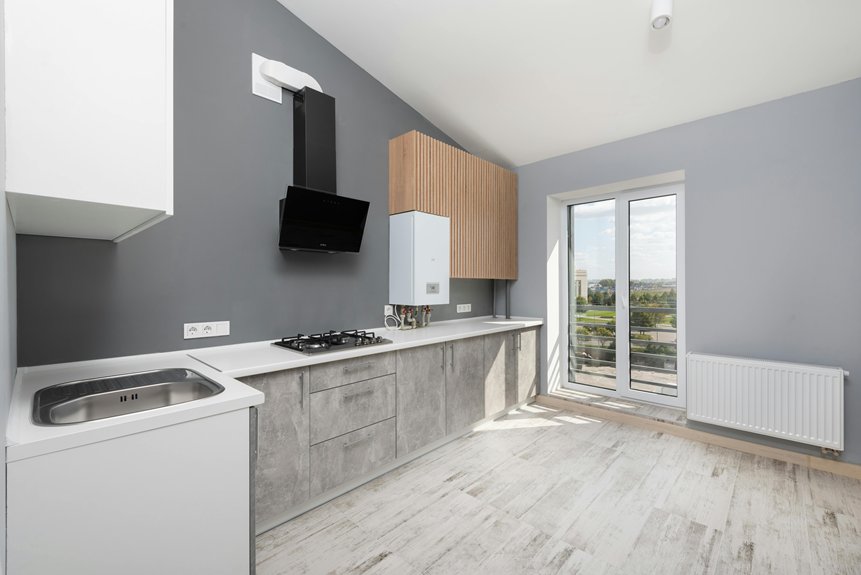When considering a kitchen remodel, you might wonder if any of those expenses can be deducted from your taxes. The answer isn’t straightforward, as it hinges on various factors such as the nature of the improvements and how you use your home. Understanding these nuances can help you identify potential tax benefits, but you’ll need to explore specific details further to fully grasp what applies to your situation.
Key Takeaways
- Kitchen remodeling costs may be deductible if improvements enhance home value or extend its life.
- Upgrades like energy-efficient appliances or new countertops can qualify for tax deductions.
- Home office modifications within the kitchen may provide additional deduction opportunities.
- Keeping detailed records of all remodeling expenses is crucial for maximizing deductions.
- Consulting a tax professional can help navigate eligibility and tax implications of kitchen renovations.
Understanding Tax Deductions for Home Improvements
When it comes to home improvements, how do you determine which expenses qualify for tax deductions? Understanding the criteria is vital.
Generally, you can only claim tax benefits for improvements that enhance your home’s value or extend its life. Projects that increase your home equity often qualify, such as adding a room or upgrading systems.
However, routine repairs typically don’t meet these standards. It’s important to keep detailed records of expenses, as these will play a significant role in your tax filing.
Routine repairs usually don’t qualify for tax deductions, so meticulous record-keeping is essential for your filings.
Always consult a tax professional to navigate the complexities surrounding deductions for home improvements accurately.
When Kitchen Remodeling Qualifies for Deductions
When you’re considering kitchen remodeling, it’s important to understand when those expenses can lead to tax deductions.
Improvements made to your primary residence, modifications for a home office, and upgrades focused on energy efficiency can all qualify.
Knowing these specifics can help you maximize your potential tax benefits.
Primary Residence Improvements
While many homeowners dream of a modernized kitchen, not everyone realizes that these renovations can sometimes qualify for tax deductions, particularly when they enhance the value of your primary residence.
If you make significant kitchen upgrades, such as replacing countertops or installing energy-efficient appliances, you may be able to capitalize on these improvements during tax season.
The tax implications can vary, so it’s essential to document your expenses and consult with a tax professional.
Ultimately, understanding how your kitchen renovations impact your tax situation can help you maximize potential deductions and increase your home’s overall value.
Home Office Deductions
Have you ever considered how your kitchen remodeling could intersect with home office deductions?
If you use part of your kitchen exclusively for business, certain remodeling costs might qualify for tax benefits. For instance, if you create a dedicated workspace within your kitchen, you can deduct a portion of the remodeling expenses proportional to the space used for your home office.
Keep detailed records of expenses and the square footage allocated to your business. Consulting a tax professional can help you maximize these deductions while staying compliant with IRS regulations.
It’s a smart way to leverage your renovation for financial gain.
Energy Efficiency Upgrades
Home office deductions can blend seamlessly with energy efficiency upgrades during your kitchen remodel.
By incorporating energy-efficient appliances and features, you not only enhance your space but may also qualify for tax incentives. These upgrades can lead to significant energy savings, making your investment worthwhile.
Here are key upgrades to take into account:
- Energy-efficient refrigerators
- LED lighting fixtures
- Energy Star-rated dishwashers
- Insulated windows and doors
- High-efficiency water heaters
Before proceeding, consult with a tax professional to guarantee you maximize potential deductions while complying with IRS guidelines.
Energy efficiency isn’t just good for the planet; it can benefit your wallet too.
The Difference Between Personal Use and Rental Properties
Understanding the distinction between personal use and rental properties is vital when considering kitchen remodeling expenses for tax purposes.
If you remodel your kitchen in a home primarily used for personal purposes, you typically can’t deduct those costs.
However, if your kitchen remodel occurs in a rental property, the situation changes. You can often deduct expenses associated with maintaining and improving your rental properties, including kitchen renovations.
It’s important to keep detailed records of expenses and their relation to rental income to guarantee compliance with tax regulations.
This clarity helps you maximize potential deductions effectively.
Energy-Efficient Upgrades and Potential Tax Credits
While many homeowners focus on aesthetic improvements during a kitchen remodel, incorporating energy-efficient upgrades can provide considerable financial benefits through potential tax credits.
By making these upgrades, you can enjoy not only energy savings but also tax incentives that ease your overall renovation costs.
Consider these options:
- Energy-efficient appliances
- LED lighting
- High-efficiency windows
- Insulation upgrades
- Smart thermostats
These choices not only enhance your kitchen’s functionality but also contribute to a greener environment.
Be sure to research current tax credits available for these upgrades, as they can considerably offset your remodeling expenses.
Documenting Your Remodeling Costs for Tax Purposes
To maximize your potential tax deductions, you need to track all remodeling expenses meticulously.
Keeping your receipts organized is essential for substantiating your claims. This careful documentation can make a significant difference when filing your taxes.
Track All Expenses
Tracking all expenses during your kitchen remodeling project is essential for maximizing potential tax deductions.
Effective expense tracking helps you stay within your remodeling budget while ensuring you capture every deductible item.
Here are key expenses to monitor:
- Material costs (cabinets, countertops)
- Labor fees (contractors, electricians)
- Permits and inspections
- Appliance purchases (stoves, refrigerators)
- Design services (architects, interior designers)
Maintain Receipts Organized
Keeping your receipts organized is essential for documenting your remodeling costs effectively.
Start by categorizing your expenses—materials, labor, and permits. Use a dedicated folder or file system for physical receipts. For a more streamlined approach, consider digital storage; apps can help you scan and categorize receipts easily.
Make certain you back up your digital files to avoid any loss. Regularly review and update your receipts organization to keep everything current.
This not only simplifies your tax filing process but also provides a clear overview of your remodeling investments, supporting your claims for potential tax deductions.
Home Office Deductions and Kitchen Renovations
While you may think of kitchen renovations solely as a means to enhance your culinary space, they can also intersect with home office deductions under certain conditions.
If you use a portion of your kitchen as a home office, some renovations might be deductible. Consider the following:
- The percentage of the kitchen used for business
- How renovations improve the work area
- Documentation of expenses related to the office space
- The tax implications of mixed-use areas
- Consulting a tax professional for specific guidance
Understanding these factors can help you maximize your deductions while ensuring compliance with tax regulations.
Impact on Property Taxes and Resale Value
When considering kitchen remodeling, it’s essential to recognize how these upgrades can affect both property taxes and the resale value of your home.
Renovations typically increase your property value, which might lead to a higher tax assessment. This means you could face increased property taxes after your remodel.
However, well-executed improvements can greatly boost your home’s appeal to potential buyers, often yielding a higher resale price.
Consulting a Tax Professional for Guidance
Before diving into a kitchen remodel, it’s wise to consult a tax professional for guidance on potential deductions and implications.
Professional consultation guarantees you understand how your changes may affect your tax situation.
Consulting a professional ensures you fully grasp how your renovation choices impact your tax landscape.
Here’s what to contemplate when seeking tax advice:
- Eligibility for tax deductions
- Impact on home value and taxes
- Capital improvements vs. repairs
- Records to maintain for tax purposes
- Timing of your renovations
Conclusion
In summary, your kitchen remodeling can potentially offer tax benefits, especially if it enhances your home’s value or supports a home office. To maximize these deductions, keep meticulous records of your expenses and consider energy-efficient upgrades. Remember, the tax implications can vary based on personal versus rental use, so it’s vital to consult a tax professional. By understanding these nuances, you can make informed decisions that could positively impact your finances during tax season.




